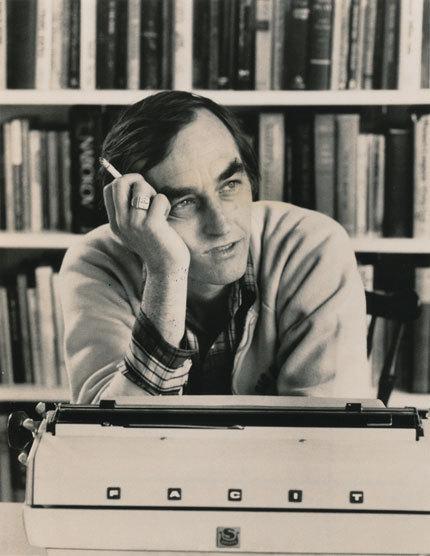Lanford Wilson
About Lanford Wilson
Lanford Wilson was a Missouri-born, gay playwright, who taught himself the art of playwriting, the mechanics of theatre industry, and in the 1960s, was one of the first to move from New York’s Off-Off-Broadway Caffé Cino, one of the major experimental theatres in Greenwich Village, to become a major Broadway playwright, and a co-founder of Circle Repertory Company, one of New York’s most important Off-Broadway Theatres. He was a major figure in gay theatre in the United States.
Wilson had grown up the son of a single mother, born in Lebanon, Missouri, and growing up in rural Ozark, starting his writing of short stories, graphic arts, and drama career in high school, under his mentor, Rex Bowers. He was not accepted by his community in southwest Missouri, because he was gay. After traveling to San Diego to connect with his father’s family, Wilson was rejected after he came out to father, and traveled to Chicago, where he switched from writing short stories to drama after taking a single evening extension course in dramatic writing at the University of Chicago. He left Chicago in the early 1960s, and traveled to New York City, becoming one of the stars of the Caffé Cino, which itself became the founding theatre of the Off-Off-Broadway movement—which was the non-union, experimental theatre in Greenwich Village in the 1960s. With his amazing early plays, some of which became seminal works of LGBTQ theatre, including early plays The Madness of Lady Bright, Home Free, Ludlow Fair, and No Trespassing, his career skyrocketed quickly.
Unlike most of the Off-Off-Broadway playwrights who rejected the commercial theatre, Wilson realized the importance of representation and mentorship, notably becoming the protégé of Edward Albee, who was one of the most important American playwrights in the American Theatre at that time. He became a pioneer from Off-Off-Broadway`s avant-garde theatre to become a dominant figure on Broadway, followed by Sam Shepard. He was a self-taught playwright who sought a broader audience and became a role-model for younger generations of playwrights to follow. His subject matter veered between urban and rural lifestyles, with a focus on gay experiences in 60s to late 80s. By relying on his own experiment technique, what became known as lyrical realism, Wilson became best known for his play, Talley’s Folly, that brought him the Pulitzer Prize for Drama in 1980. He also went to receive the Artistic Achievement Award from the New York Innovative Theatre Awards in 2010 and received the PEN/Laura PELS International Foundation for Theater Award as a master American dramatist. He was nominated for three Tony Awards and has won a Drama Desk Award and five Obie Awards.
